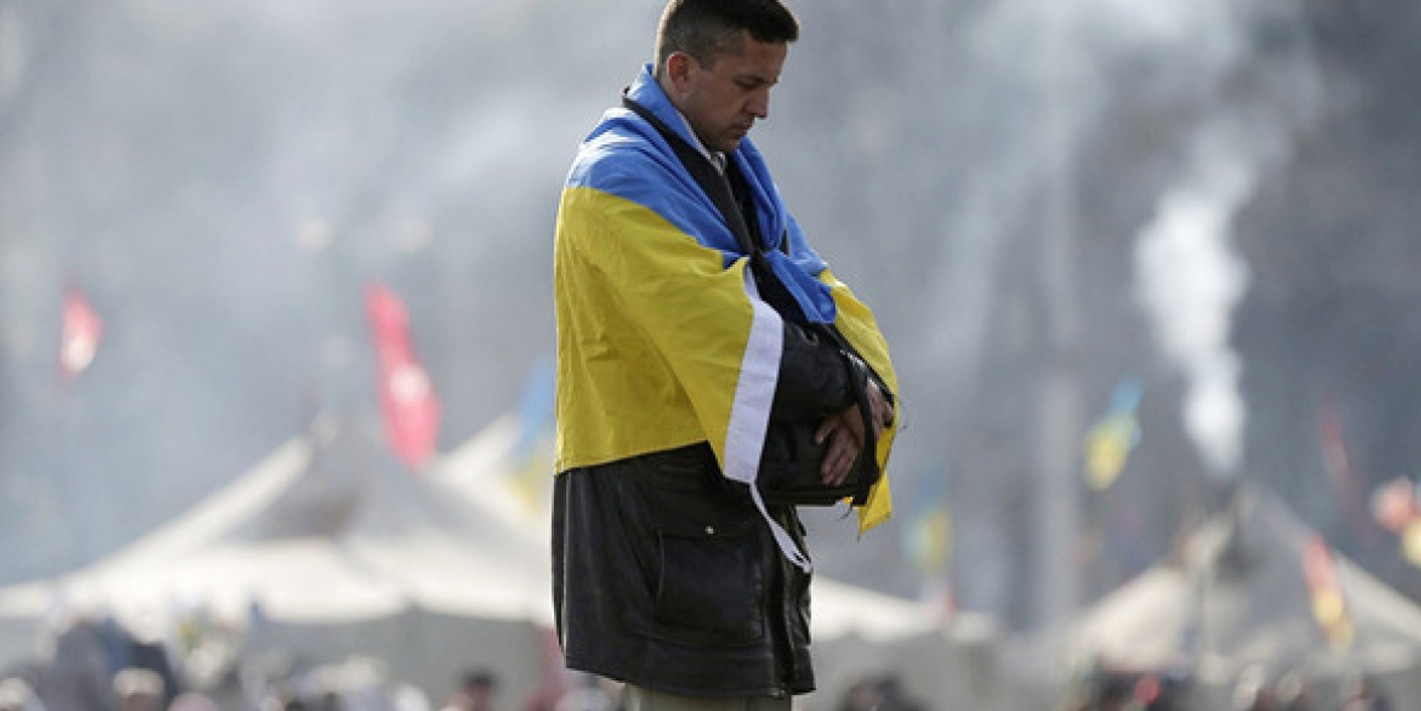How the West can help
The turmoil in Ukraine is a chance for the West to prove that it is still a force for good
A MAN goes bankrupt, Ernest Hemingway wrote … , gradually, then suddenly. Autocrats lose office the same way, as the fate of Viktor Yanukovych, Ukraine’s deposed president, dramatically illustrates. His authority had ebbed since popular protests against his spectacularly corrupt regime erupted last November. After the savage shooting of scores of his own people in Kiev, Ukraine’s capital, once-supportive tycoons and generals abandoned him, and his power evaporated. Mr Yanukovych fled, pursued this week by a charge of mass murder.
Вернуться на Главную

His countrymen celebrated — some of them, at least (see article). The relief is understandable: with Mr Yanukovych gone, Ukraine has a chance at last to ditch its ersatz, post-Soviet version of democracy for the genuine kind. Equally — and terrifyingly for both Ukraine and its neighbours — this country of 46m people could implode. Averting that outcome is an urgent task for the West; for the European Union, in particular, this is a chance to show that, for all its internal fissures and foreign-policy quiescence, it is more than a busted flush.
By any historical measure, Ukraine is part of Europe. It borders four EU nations. Its great cities — Kiev, Lviv, Odessa — are ornaments of European civilisation. So its problems are Europe’s problems, too. Many Ukrainians already live and work in the EU, legally and otherwise. Economic or political turmoil could drive many more to emigrate.
And the turmoil bequeathed by Mr Yanukovych (reportedly in Russia, perhaps having fled on his unfortunately named yacht, the Bandido), is acute. Tension is crackling between Ukrainians who welcome the revolution, and those who repudiate it: in Kiev its victims are mourned as martyrs, yet elsewhere the riot police who battled them are lionised. Even with the unadulterated goodwill of outsiders, the situation would be perilous — and goodwill is not conspicuous in the Kremlin, which propped up Mr Yanukovych’s presidency and now denounces those who ousted him as terrorists. Meanwhile, this perennially mismanaged nation is almost broke.
First and foremost, Ukraine needs a legitimate, national government. The interim leaders installed by the Rada, its parliament, may be more palatable than Mr Yanukovych; but the Rada is a nest of crooks and placemen, and scarcely more legitimate than he was, as some protesters, and Russia, have pointed out. It is vital that the presidential election in May is clean, and seen to be: Western monitors must help to ensure that. And the new president should be untainted by the score-settling and nest-feathering that have blighted Ukraine’s politics. That is one lesson from the Orange revolution of 2004 — an event that seemed to herald a democratic future, but instead merely reshuffled an entrenched elite. Yulia Tymoshenko, the Orange veteran and two-time prime minister, who was sprung from jail as Mr Yanukovych fled, should keep out of it.
Whoever wins will need help, and not just the financial kind. When he wasn’t pillaging his country, Mr Yanukovych undermined its courts, suborned its constitution and harassed its media, institutions that are as much a part of an enduring democracy as elections (seeessay). That is another warning from the Orange revolution: without a proper underpinning, emerging democracies can slip back into misrule. The West must lend its expertise and resources to restore it.
But Ukraine needs money too — lots of it, and urgently. Its finances are dire: its hard-currency reserves are dwindling, the current-account deficit is widening and around $13 billion of debt repayments are due this year. Russia is unlikely to honour the $15 billion bail-out it agreed with Mr Yanukovych in December. Ukraine needs around $25 billion to stay afloat. That should come in two parts: first, several billion dollars in emergency loans to tide the country over until after its election, then a big multi-year package, financed largely through the IMF.
Of course, IMF support will come with conditions, such as a clean-up of Ukraine’s Augean corruption, a depreciation of its overvalued currency and a curtailment of its lavish energy subsidies. The interim government should begin these reforms, to take some of the heat off the elected one. And the Europeans can help, too, both with technical assistance and by holding out the best inducement to reform they can offer: the prospect (however distant) of full EU membership. That idea will alarm some member states, not to mention their voters. They should see that incentivising democratic change in this pivotal country, and welcoming it to the European club if that is accomplished, is as much in their interests as Ukraine’s.
Right and wrong, not west and east
The EU and its allies should do all this because it is right, rather than to rile Vladimir Putin. All the same, Mr Putin will be outraged. Russia is already destabilising — perhaps even preparing to annex — the Crimea, a peninsula transferred to Soviet Ukraine in 1954. Pro-Russian gunmen seized administrative buildings there on February 27th. Even if Mr Putin restrains himself for now, he is sure to respond eventually: he nurtures grudges for years, and the Potemkin democracy he has engineered in Russia lets him stick around long enough to avenge them. He exorcised his grievance over the Kosovo war of 1999 by invading Georgia in 2008. Ukraine is much more important to him than Georgia, for without it Russia’s sphere of influence looks paltry. Even in Mr Putin’s warped view of Russia’s interests, a civil war there would be undesirable — but, short of fomenting one, he will doubtless do his best to stop the country becoming an independent democracy.
All the more reason for the EU and …



































